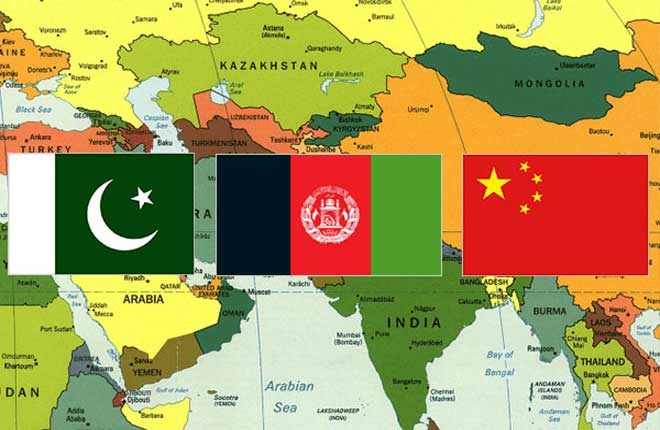Islamabad-Kabul ties and CPEC

AFGHANISTAN and Pakistan share a deep historical and cultural affinity. Still, there is a history of the problematic relationship between Kabul and Islamabad. As we know that peace in Afghanistan is crucial for all countries of this region especially when it comes to trade. Significantly, CPEC, a flagship project of BRI (Belt and Road Initiative) became a hope for regional economic integration and major regional countries are aspiring to become part of it. However, Afghanistan’s India centric policies may prevent Kabul from gaining from CPEC and BRI as Delhi is a strong opponent of CPEC for a number of self-claimed and irrational reasons. Pakistan dossiers on Indian sponsored terrorist activities in Pakistan have exposed Indian malicious designs. Indian activities against Pakistan are aimed not only to sabotage peace and prosperity of Pakistan but they will also disturb the regional peace and harmony, specially the relationship of Pakistan with Afghanistan, therefore, it is imperative that Afghanistan should review its regional policies and try to use a pragmatic approach.
When it comes to Pakistan, Islamabad has already allowed Afghan traders to use the Gwadar Port and gave a new impetus to the Islamabad-Kabul ties. It was in October 2019 when Pakistan opened the Gwadar Port for the Afghan transit trade. The first ship carrying containers for Afghan transit trade arrived at the Gwadar Port on January 14, 2020. We know that Afghanistan had signed a transit trade agreement in 1965 that was revised in 2010 which calls for better facilitation in the movement of goods between the two countries. But lack of trust and spoilers of peace came in the way of friendly ties. As we already have mentioned that this year new initiatives taken by the Government of Pakistan for paving a way for trustful and durable ties made some significant events possible. PM Imran Khan’s November 2020 visit to Afghanistan was one of that. Just Before PM’s visit, Adviser to Prime Minister Imran Khan on Commerce, Abdul Razaq Dawood led a trade delegation to Kabul. Later Razaq also announced that the Afghanistan-Pakistan Transit Trade Agreement (APTTA) and Preferential Trade Agreement (PTA) will be finalized between the two countries by the end of January 2021. It was important to note that the two countries had not held any APTTA meeting since 2016, while talks on bilateral trade were also suspended until recent high profile visits from both Kabul and Islamabad.
Also in April 2020, Pakistan announced to allow the import of the Afghan bulk cargo of wheat, sugar, and fertilizers at the Gwadar port and onward transit to Afghanistan in sealable trucks, instead of being limited to containers. Then a cargo ship, carrying about 16,000 tons of urea for transit to Afghanistan arrived at the Gwadar Port in May. While appreciating such a measure of mutual cooperation the Ambassador of Afghanistan to Pakistan Atif Mashal said that “Afghanistan and Pakistan must extend support to each other for the revival of commerce and connectivity in Central and South Asia that will surely benefit people in the region. Importantly in July 2020, Chinese Foreign Ministry’s Spokesperson, Hua Chunying also said that Gwadar and other CPEC projects have played a significant role in regional integration. Hua further underlined the inclusion of Afghanistan into CPEC so that the Afghan people can benefit from the BRI.
Coming to Central Asian Countries (CARS) that have already shown their intentions to join CPEC, especially Uzbekistan and Kazakhstan. A cooperative relationship between Pakistan and Afghanistan will open up the doors for easier access to trade with Central Asia for Pakistan. Both countries can also cooperate on some conflicting issues as well with the increased trade and with increased shared interests. Spoilers may, for their advantage, can try to sabotage this process of peace and trade. But joint regional cooperation and collaborative efforts can defeat such evil strategies. Analysts on CPEC and regional cooperation believe that an alternative does exist for Pakistan to reach Central Asia and vice versa but connectivity through Afghanistan would benefit more and reduce the cost for all stakeholders in CARs, Beijing, Kabul and Islamabad. All regional partners can further collaborate on durable peace in Afghanistan and can jointly stand against the menace of terrorism which is actually the common enemy.
Souce: Pakistan Observer


